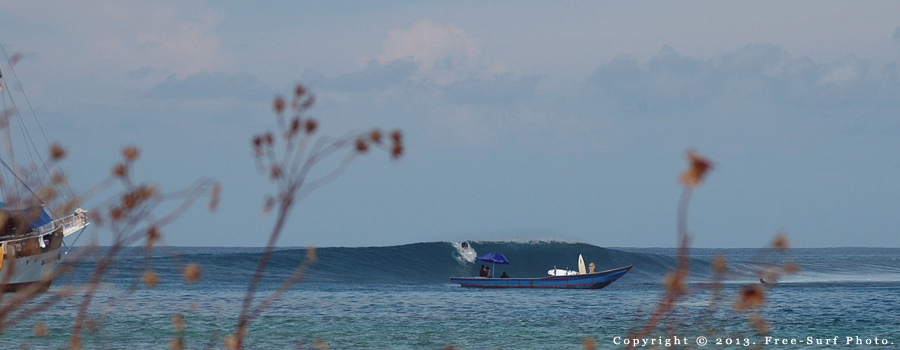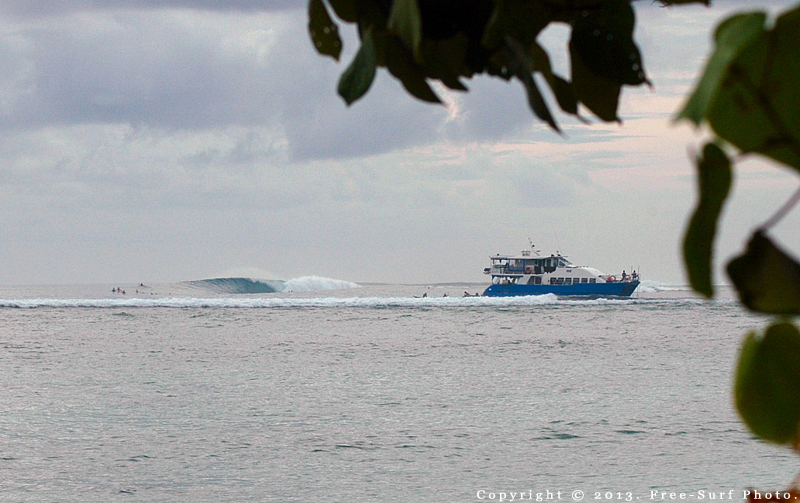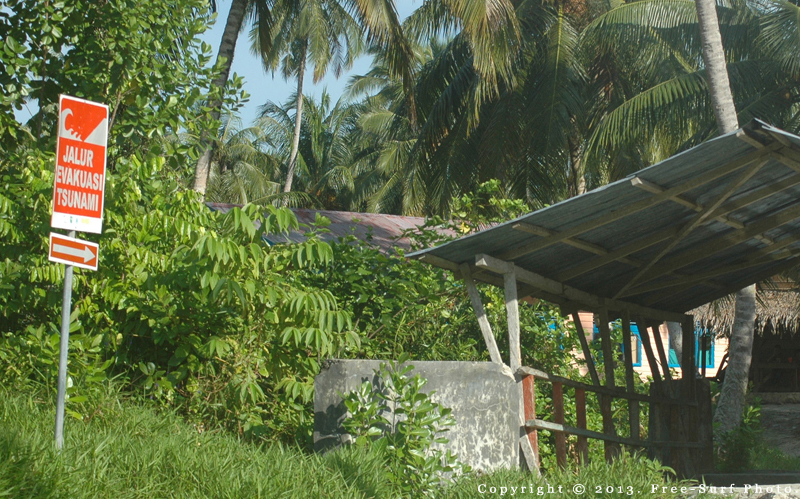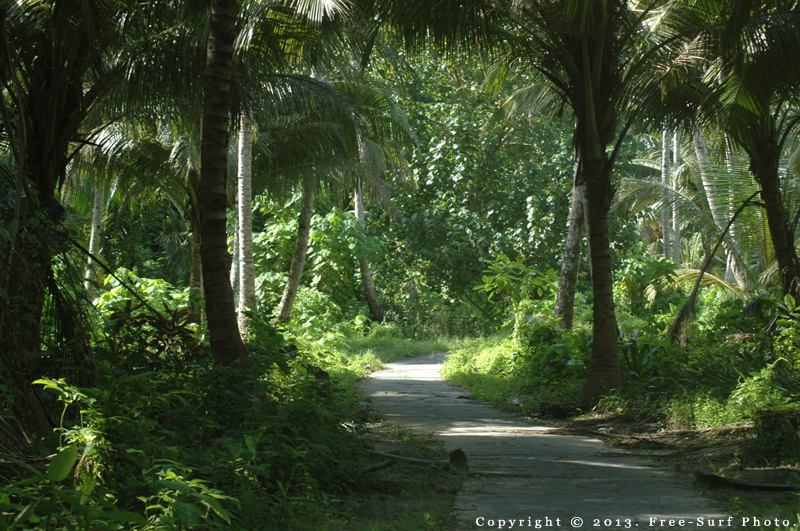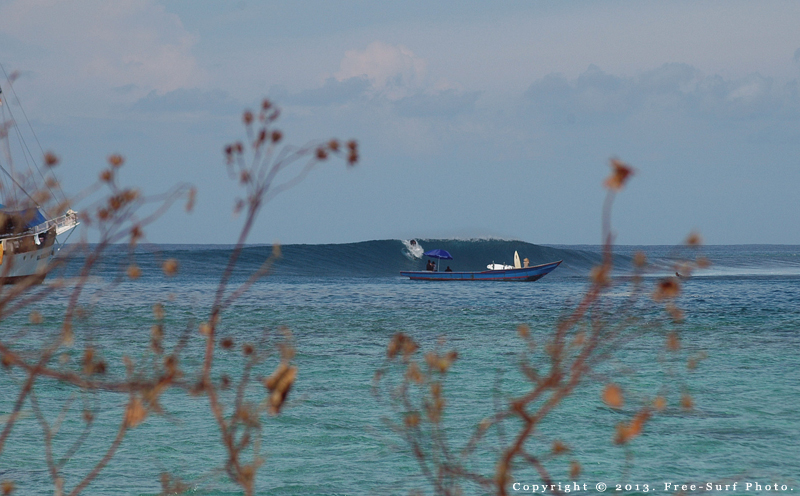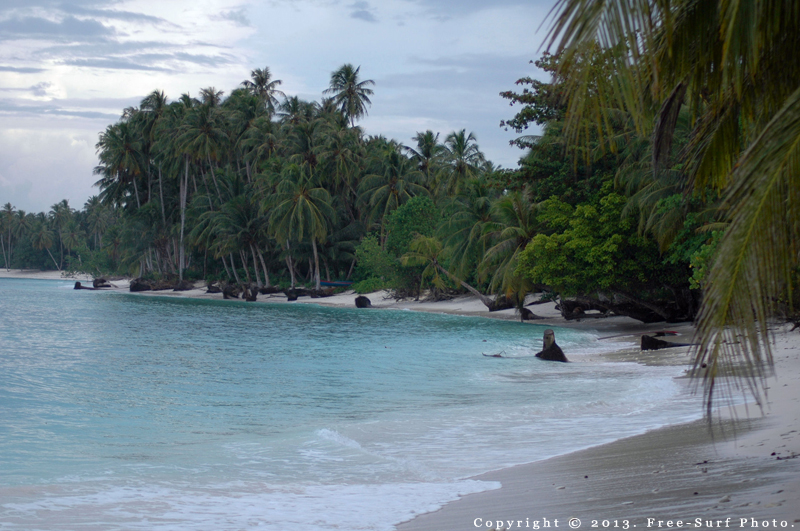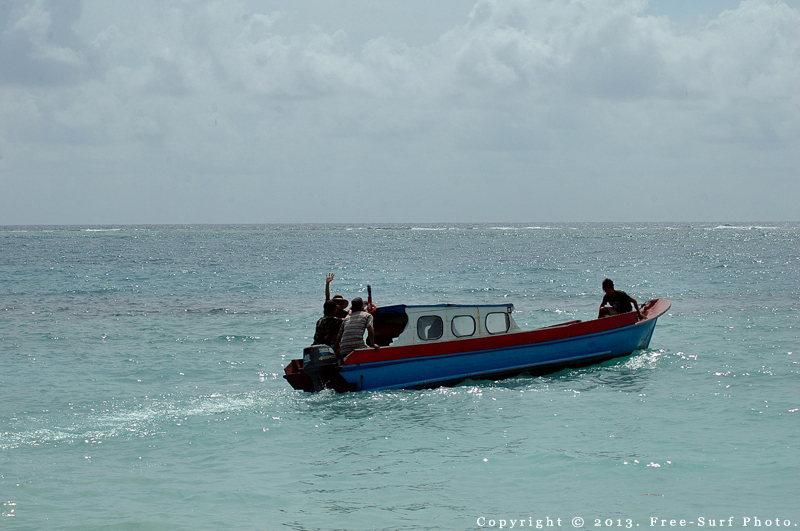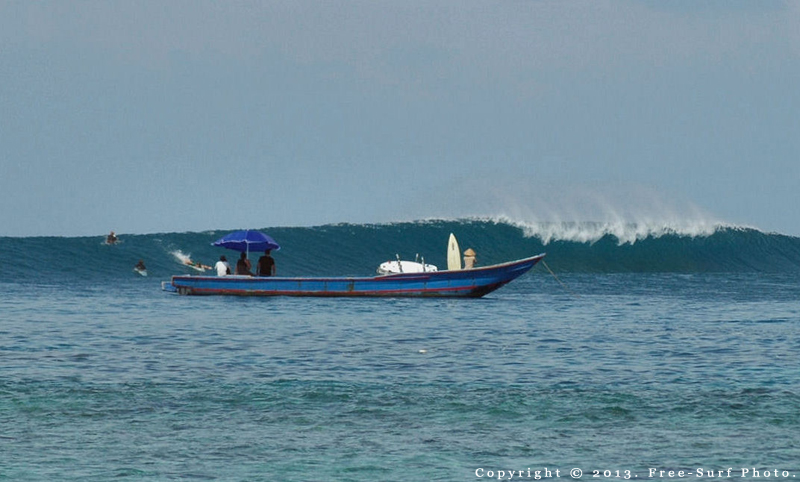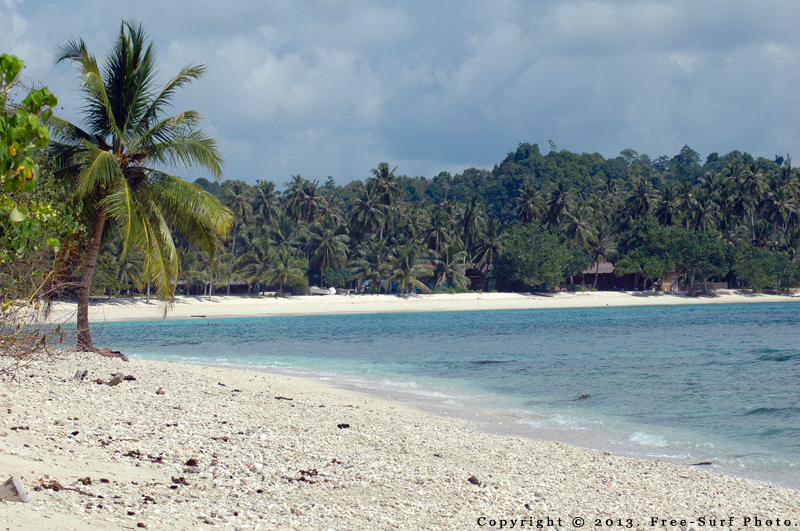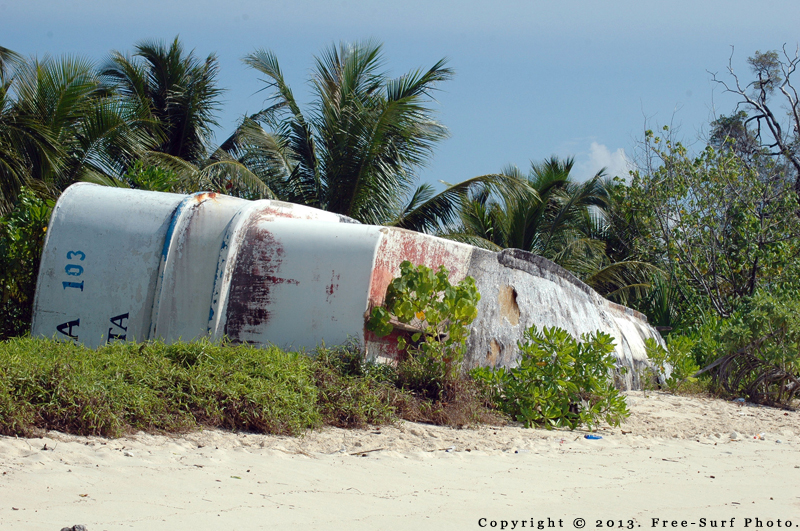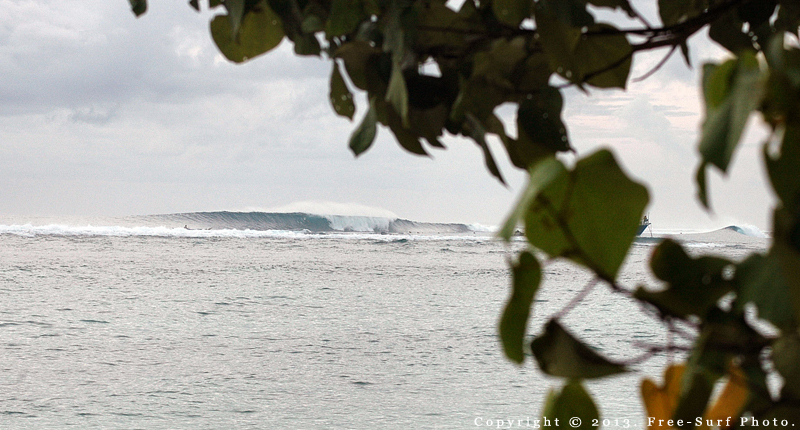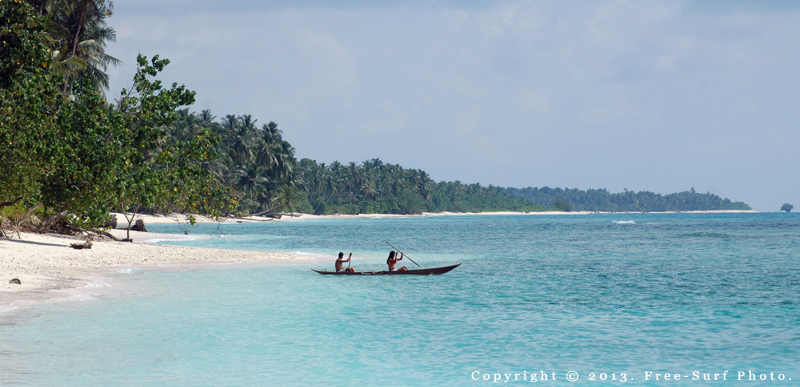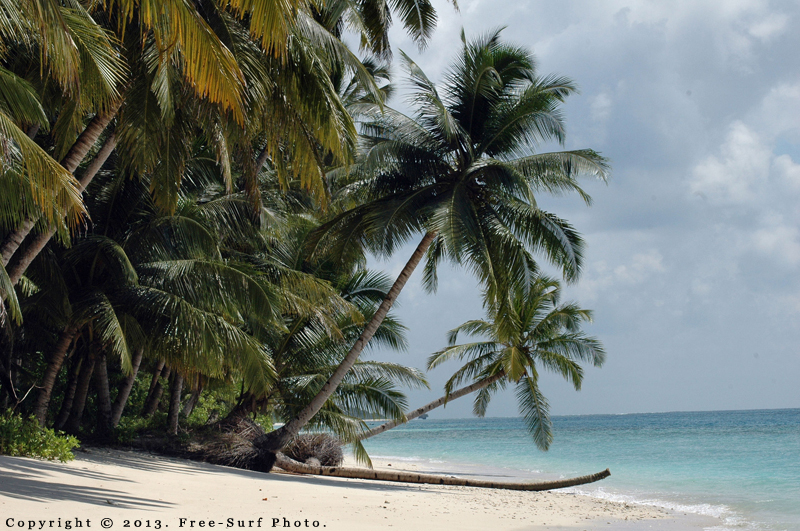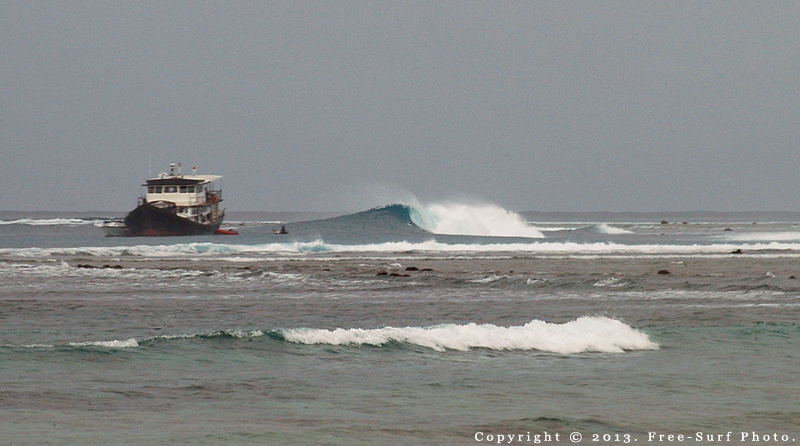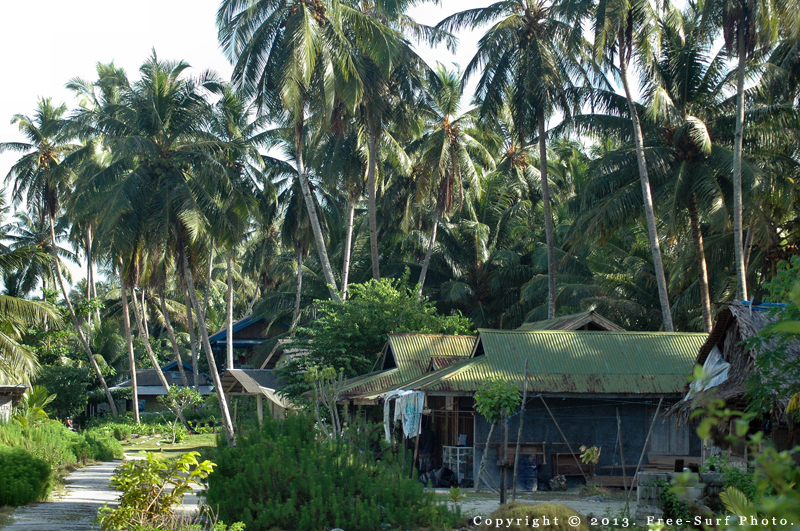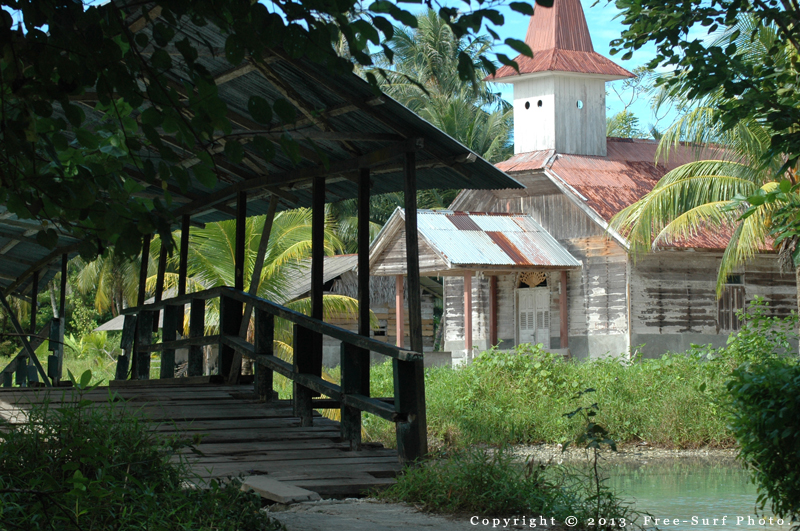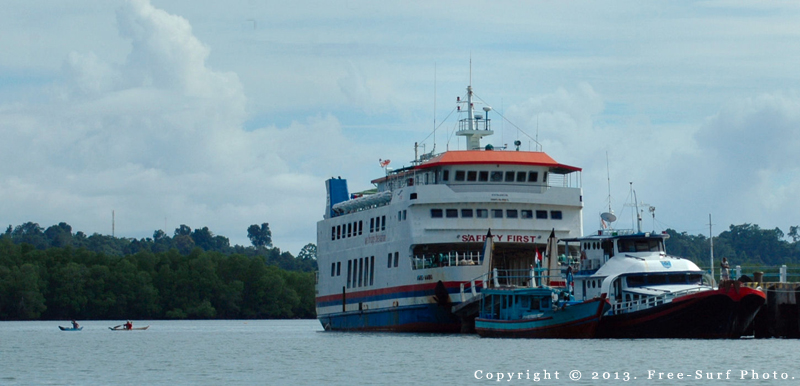Another disaster in the news today: a ferry caught fire after one of the passengers dropped negligently a cigarette in a trash, 6 dead, 7 missing. Two days later, another one capsized from the impact of a large wave, four people were confirmed killed. The number of ferry accidents due to rough seas, overcrowding, poor maintenance, lack of safety or negligence, is scary over there. Our boat rather looks in good condition. On its front stands “safety first” in capital letters, but it rather sounds like a cheap attempt to restore a measure of trust. As we are in the process of being loaded with goods and people, time is long waiting for the overnight crossing to begin. A couple of Portuguese and I seem the only orang barat (westerners) on the boat, so we naturally start killing time talking and getting to know each other. It is their first travel to the islands and I try my best to describe the wilderness and beauty of this place, as far as I can remember from my first trip ten years ago. As the boat is always crowded, finding and keeping a place for the night is a gambling game. There is no rule, bodies end up cramped together with baggage on the floor, you need to fight for mattresses. Evening falls slowly marking the end of a hot sunny day that at least should let us hope calm seas, albeit a long, uncomfortable time till our promise land of perfect surf. Paradise looks a long way off in the experience of pragmatic reality.
I happen to negotiate a not so bad sleep having found a tiny space to lie down and rest on the upper deck. We finally arrive at dawn to our port of destination in the capital of the island, warmly welcomed by the local boatman in its funny, hard to get, casual English. We come to understand that five other people are surfing in the nearby area and we have to pick them up before leaving for the remote village which is the real purpose of the trip. When we find them some time later, they are surfing a picturesque left breaking half a mile off the coast. There is a couple from Canary Islands and three Australians that have been wild camping in the islands the last few days. One of them is a long time visitor and has a range of stories to share from the few months he has already spent there this season. His back is covered with mosquito bites, each the size of a bean. I don’t want to mess with mutants and resolve to buy more anti mosquito, in addition to the provision of cream, anti malaria pills and bug net I already have. After a long process of packing their stuff on the tiny longboat overloaded now with ten people, boards, bags and camping equipment in the middle of gasoline tanks, we leave two of them at the harbor and let them try their luck with the ferry back to mainland. It is finally time to move to the village. As dawn breaks a few hours later, we are coming to the end of a long journey. Barely off the boat, we eat and collapse in our beds.
With a local population of maybe 300, the village comes from one of the poorest and most disadvantaged communities in the country. These islands have been overlooked for long by the authorities because of their isolation and lack of resources. There is no infrastructure, no job, no car, no real road, no running water or electricity, no food store, no fridge, … Local people has maintained a traditional lifestyle that derives from a genuine rain forest culture shaped for centuries by living off the land. Most ongoing needs come from the natural resources provided by the tropical jungle and ocean environments. Recently, the islands were affected by a tsunami that caused widespread destruction and hundreds killings. Wild weather conditions and surrounding environment, tropical diseases and lack of medical care are many factors that unsettle life in this region. A medical aid agency recently brought important health improvements in the village achieving a significant decrease in malaria cases which used to kill one in four children just a few years ago. It takes a little walk in the village to realize the adversity of those living conditions, which is in striking contrast with the abundant generosity and humanity people show naturally over there. Travelling underdeveloped parts of the world always comes with serious questionings about western excessively materialistic and self-centered values. I finally decide to take the opportunity offered to stay in our boatman’s family in the village to try to learn a little from this side of the story.
Located at the southern most part of the island, the land is made up of dense tropical rainforest surrounded by endless beaches and fringing coral reefs. This southernmost situation makes it exposed consistently to a variety of swells. The village actually faces back the dominant swell direction but a special configuration gives rise to an unusual refraction effect which results in a mechanical right-hander peeling flawlessly along the reef, and breaking as a tube that can reach an impressive perfection. At about an hour’s walk on the opposite side stands a consistent quality left made up of a variety of sections producing anything from barrels to walls to carve. Both waves provide an interesting ability of wind complementarity: when the right is bad, the left is good and inversely. As you need to go one side or the other depending on the wind, every day much time is spent walking narrow trails across the village, steep cliff, beaches and humid heat of the forest loaded with board, food and water in search of the best surf to score.
However, surf perfection here comes with an added cost: a fairly shallow, sharp and occasionally emerging reef. There is nothing relaxing about surfing there and everyone pays local taxes to the coral bank at some point. On a falling tide at the left, an unfortunate guy got slammed head first to the reef ending up with a nasty head injury. It takes hours to reach a doctor on the island and a lot more for serious medical care on mainland. Shit gets real fast in the middle of nowhere. More than anywhere else, the hard part is to build up local waves knowledge and try not to overlook some risks. Early waves are intended to get used to the conditions and after a period of adaptation, it comes naturally to pushing it more on a good day at the right. Paddling hard for a first wave on a promising set, I make the drop, set up a quick bottom turn and pull into the face to be instantly covered up by a super fast running lip. With no time to rest, I’m racing the barrel all the way to the channel, ending over a more elevated part of the reef awaiting to see me fail. Kicking out properly, it’s super shallow and I paddle back out right away to avoid getting caught here. Building on success, I paddle into a second one a few minutes after, it’s quite much the same story and I end up just a little bit deeper. A form of selective amnesia builds on increasing self-confidence and I become less focused on the reef. On the few ones I didn’t make later, I did my best to avoid damaging the reef too much. With the variety of waves and conditions, there are many other sessions of all kinds, always of above average standards. Quality surf requirements are usually what we are ready to travel widely for. This applies especially here, even more in this playground of unspoiled wilderness.
Now that I’m back, I come to realize how a true local perspective added meaning to this trip. As travelers, we should better account for our responsibilities in passing these untouched parts of the world. Despite the efforts stated by established surf business to support sustainable development here, things rather went wrong in ten years. It is now saturated with boats, full of guys paying a steep price, and land resorts are going the same way. Apart from the joy of playing aggro with crowds who want to see value for their money, there are critical concerns over the development prospects of the region. All this became a serious business but the resident population benefits little or nothing apart from a few basic jobs as crew members, resort maids, and cooks. After going there twice and considering past examples, it would be naive to think that the situation will turn into a positive outcome for the locals. Not much I can do at my level but I’m pretty happy that I did not contribute to grow unfair corporate profits and gave back a little to the communities instead.
